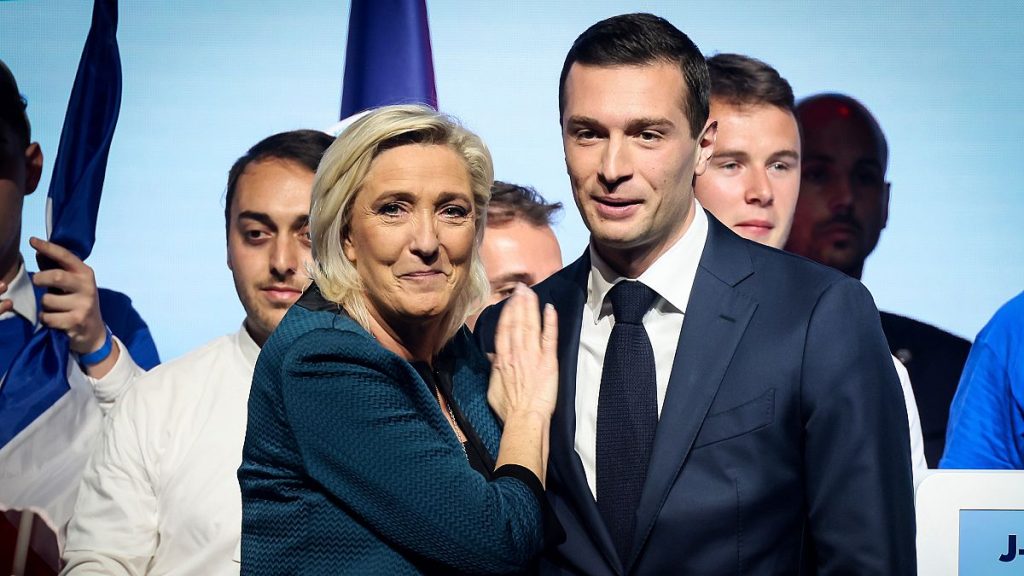Members of the Identity and Democracy group are considering forming a “supergroup” with the European Conservatives and Reformists in order to elevate the far-right to become the second-largest force in the European Parliament. Despite the National Rally holding the largest representation in parliament with 30 seats, the far-right group Identity and Democracy finished fifth in the European elections. Jean-Paul Garraud, the chair of the National Rally delegation, attributes this rise in sovereignty across Europe to voters realizing the impact of key issues such as immigration and energy. Efforts are now focused on negotiating with other groups to expand ID, with Marine Le Pen reaching out to Giorgia Meloni to form a “super-group” in the European Parliament. Leaders from the far-right, including Le Pen and Matteo Salvini, recently met in Brussels to discuss their strategy.
Garraud mentions that he has established good contacts with other groups, such as the European Conservatives and Reformists, as well as Spain’s Vox and Poland’s PiS. However, the reintegration of the German far-right party Alternative for Germany (AfD), which was previously excluded from Identity and Democracy group in May, is not being considered. Garraud highlights his satisfaction that the “cordon sanitaire” which previously limited the far-right’s influence in the European Parliament has now been breached, giving his group more influence over the European agenda.
The National Rally’s large group represents a surge in sovereignty across Europe, with voters becoming more aware of the impact of key issues like immigration and energy. Efforts are now focused on expanding the Identity and Democracy group by negotiating with other groups, such as the European Conservatives and Reformists, to form a potential “supergroup” in the European Parliament. Leaders from various far-right parties, including Marine Le Pen and Matteo Salvini, have recently met to discuss their strategy going forward.
Garraud mentions that he has established good contacts with other groups such as the European Conservatives and Reformists, Spain’s Vox, and Poland’s PiS. However, the reintegration of the Alternative for Germany party into the Identity and Democracy group is not currently on the table. Garraud emphasizes that the breach of the “cordon sanitaire” has given the far-right group more influence over the European agenda, marking a shift in the political landscape of the European Parliament.
Despite being the party with the largest representation in the European Parliament with 30 seats, the far-right National Rally finished fifth in the European elections. However, the rise in sovereignty across Europe attributed to the impact of key issues like immigration and energy has fueled efforts to expand the Identity and Democracy group by forming alliances with other groups. Discussions are underway to create a potential “supergroup” with the European Conservatives and Reformists, as well as closer ties with other like-minded parties in Spain and Poland.
Garraud’s comments on the exclusion of Alternative for Germany from the Identity and Democracy group indicate a strategic decision to maintain their current alliances. The breach of the “cordon sanitaire” that previously limited the far-right’s influence in the European Parliament is seen as a positive development for the National Rally and their allies, allowing them to have greater sway over the European agenda. The recent meeting of far-right leaders in Brussels underscores the ongoing efforts to strengthen their position and shape the future direction of European politics.


